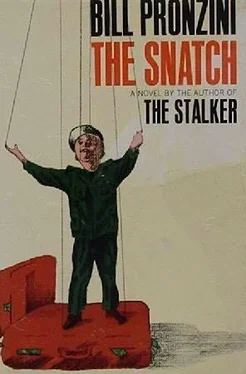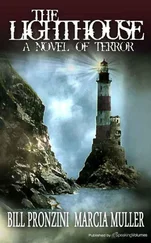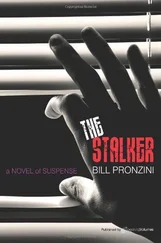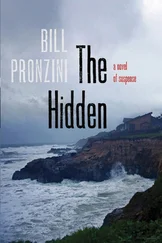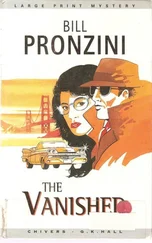Bill Pronzini - The Snatch
Здесь есть возможность читать онлайн «Bill Pronzini - The Snatch» весь текст электронной книги совершенно бесплатно (целиком полную версию без сокращений). В некоторых случаях можно слушать аудио, скачать через торрент в формате fb2 и присутствует краткое содержание. Год выпуска: 0100, Жанр: Криминальный детектив, на английском языке. Описание произведения, (предисловие) а так же отзывы посетителей доступны на портале библиотеки ЛибКат.
- Название:The Snatch
- Автор:
- Жанр:
- Год:0100
- ISBN:нет данных
- Рейтинг книги:4 / 5. Голосов: 1
-
Избранное:Добавить в избранное
- Отзывы:
-
Ваша оценка:
- 80
- 1
- 2
- 3
- 4
- 5
The Snatch: краткое содержание, описание и аннотация
Предлагаем к чтению аннотацию, описание, краткое содержание или предисловие (зависит от того, что написал сам автор книги «The Snatch»). Если вы не нашли необходимую информацию о книге — напишите в комментариях, мы постараемся отыскать её.
The Snatch — читать онлайн бесплатно полную книгу (весь текст) целиком
Ниже представлен текст книги, разбитый по страницам. Система сохранения места последней прочитанной страницы, позволяет с удобством читать онлайн бесплатно книгу «The Snatch», без необходимости каждый раз заново искать на чём Вы остановились. Поставьте закладку, и сможете в любой момент перейти на страницу, на которой закончили чтение.
Интервал:
Закладка:
I went out and paid the attendant and turned south, passing on the outskirts of the village of Half Moon Bay-a small cluster of buildings huddled seaward like old ladies under the tattered gray shawl of the coastal fog. The mist, which had been thick and fleecy on the road coming over, was higher and thinner here at sea level. It made the highway as slick as polished black glass under my tires and headlights, and spotted the windshield with the kind of liquidity you get from an aerosol spray can.
The section of the coastline beyond the village was barren and sparsely populated. To the left, undeveloped and thinly vegetated land stretched away into the wet gray-black of the night; to the right, the soil was rocky and grown with cypress and eucalyptus in a kind of windbreak well removed from the road. Deep, slope-sided, element-eroded ravines split the high cliffs overlooking the Pacific in hundreds of places, some of them extending inland as far as half a mile. You could see the lashing assault of the wind-swept sea on the jagged rocks from certain spots along the highway, but at others your vision was cut off by the trees and the rocky terrain and you were as much as a mile from the ocean itself.
I knew the area a little; there were a few homes and cottages strung out on the bluffs, or set back along the sides of the ravines-man-made blemishes on the awesome face of nature. Most of them had access to narrow strips of driftwood-strewn beaches along winding paths down the steep gorge slopes. It was in one of these dwellings that Art Shanley apparently lived.
I reached Cliffside Drive and turned off and followed its narrow, pitted expanse past a few lighted homes and a lot of wet, shiny ice plant that was greenly opalescent in the diffused radiance from my headlamps. A quarter-mile in, a wooden sign loomed on the left and the words Dreyer Rd. were visible on it in small black lettering. I swung down there, and it was nothing more than a graveled cart track winding in a southwesterly direction, hugging and skirting two of the shallower ravines without any sign of habitation. Then the road straightened out onto a fog-shrouded bluff face, and split into two forks. There was a lot of thickly bunched scrub oak and cypress growing in the crotch of the fork and paralleling the branch which wobbled its way further southwest and ended a few hundred yards distant at the vaguely discernible outlines of a darkened cottage. The second branch hooked back to where another cottage squatted dimly at the edge of the near ravine; that would be Shanley’s, from what his sister-in-law had said. Bars of pale light shone through straight-louvered shutters over a long front window, glowing eerily through the shimmering wetness of the fog.
I turned the Valiant in that direction and coasted into a wide circle before it. A black or dark blue Rambler American, sheened with wetness and rust-scarred by the perpetually damp salt wind, was parked with its front wheels touching one of three logs which had been set as brakes thirty feet in front of the cottage. I parked beside it at a second log.
The building, I could see in the shine of the headlights, was weather-beaten pineboard, a dull eroded gray with a lot of humps and knots like a beachcomber’s shack. It was enclosed in front by a similar board fence, and off on one side was a small matching shed. There was a look of instability to it all, as if a good stiff storm wind would hurl the cottage and the shed out over the cliffs and into the ocean.
I switched off the lights and got out of the car. Cold wind whistled in from the sea, eddying the fog like mildewed garlands around my head. The sound of the turbulent Pacific seemed unnaturally loud out here, as if the bluff were a tiny atoll and the ocean was all around it, hammering at it, chipping it apart and consuming it piece by piece, inexorably. I shivered a little and pulled the overcoat tight around my neck, moving quickly to the unlatched gate in the fence.
A crushed oyster-and-clam-shell path, grown through with coarse grass, extended into a wide rectangle before the door; on both sides of it, ice plant caressed the rough boarding of the cottage with shining green fingers. I went up to the rectangle and reached out and knocked on the door.
No answer. I waited half a minute, and then knocked again, listening for some sound from within. There was nothing except the stentorian and relentless roaring of the wind-lashed Pacific flinging itself on the rocks beyond and below.
I worked saliva into my mouth and took a couple of careful steps sideways, into the ice plant. My shoes crushed the wet pulpy tendrils with the same sound as when you step on a thick-shelled beetle. I leaned forward, retaining a breath, and put my eye up to one of the bars in the louvered shutters and looked inside the cottage.
A melange of mismatched furniture-rattan, overstuffed fabric, imitation Danish Modern-and the light coming from an inverted and milky-bowled floor lamp. Mail-order stereo components, all of which had apparently been built from kits, on tiers of shelves made out of brick building blocks and lengths of wood along one otherwise bare wall. A small wooden table cluttered with capacitors and resistors, solder and spools of wire and a soldering gun, various-sized parts and tools. Bare wood floor, a darkened archway to another room-nothing else. I touched my tongue to my cold lips and moved as far to the left as I was able so that I could see more of the room: more bare wall, a battered portable television set on a roll-stand, a cylindrical brass-finished smoking stand. The area immediately in front of the door was still blocked from my vision.
I stepped back onto the crushed-shell rectangle and knocked on the door a third time. Still nothing. Before I could consider the advisability of the move, I reached out and grasped the knob and twisted it slowly, silently. The door opened a couple of inches under my hand.
There was the smell of something in there, a lingering chemical odor that I had known a long time ago and would never forget: spent gunpowder. The hairs at the base of my neck rose, and a different kind of chill swept over me now; I could feel my heart begin to jump irregularly in my chest and there was sweat under my arms and flowing cold-hot along my sides. My stomach throbbed and ached.
I released the knob and pushed the door open with the tips of my fingers, keeping my body motionless. It swung inward with a faint, odd, empty sound, and then I could see the flooring across the threshold that had not been visible from the window.
A man lay on his right side there, a couple of feet into the room, facing away from me. His legs were drawn up, and both hands were frozen in clawed agony at his chest. Blood had spilled out between the spread fingers; a pool of it, with appendages as thin as spider’s legs jutting out into the cracks in the boarding, shone a deep burgundy in the pale light.
I took a couple of steps inside, moving woodenly. The man was about thirty, dressed in faded corduroy trousers and canvas shoes and a white terry-cloth pullover with the word Art stitched in blue script over the left pocket. His face was contorted, the eyes squeezed so tightly shut they seemed sewn, and he had bitten through his lower lip in his agony.
I knelt down by his head and made myself look at his chest. It was a bullet wound, all right, but there was no sign of exit. I touched the skin at the base of his neck: still warm. He had not been dead very long.
I straightened up and kept on staring down at the thing that had been Art Shanley, undeniably Art Shanley, and I thought: He’s the one, yes, he’s got to be the one. He learned of the kidnapping from his brother and saw his chance ro get his hands on more money than he’d ever seen before or would see again. He went down to Martinetti’s late that same night and planted the bug in the phone and waited all the next day-maybe in his car, maybe just walking around with a portable radio-for the ransom call to come in. When it did, he went up to the drop site early and hid out there to wait for Lockridge, the kidnapper, and for me to show up with the money. But he was too quick after I put the suitcase on that sandstone rock, too nervous maybe, and he used the knife on Lockridge before I was gone. When I came back down, he slashed me and then got out of there with the money and he was in the clear-he thought he was in the clear.
Читать дальшеИнтервал:
Закладка:
Похожие книги на «The Snatch»
Представляем Вашему вниманию похожие книги на «The Snatch» списком для выбора. Мы отобрали схожую по названию и смыслу литературу в надежде предоставить читателям больше вариантов отыскать новые, интересные, ещё непрочитанные произведения.
Обсуждение, отзывы о книге «The Snatch» и просто собственные мнения читателей. Оставьте ваши комментарии, напишите, что Вы думаете о произведении, его смысле или главных героях. Укажите что конкретно понравилось, а что нет, и почему Вы так считаете.
